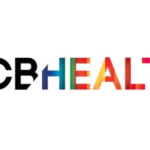The PepsiCo Foundation commits US$4.2 million to WaterAid to increase safe water access in at-risk communities in India and incremental US$2 million to China Women’s Development Foundation for safe water access in China’s most in-need villages
PepsiCo announced it has expanded access to safe water to nearly 16 million people in some of the world’s most water-stressed areas, including 10 million people in India, since it launched its Performance with Purpose vision in 2006. The company has invested more than US$40 million/£30.38 million in safe water access solutions with strategic partners as part of its goal to support a total of 25 million people with safe water access by 2025.
“At PepsiCo, we believe water is a fundamental human right and that access to safe water is one of the most urgent global challenges. Over the last decade, we have been focused on grassroots solutions to this challenge as well as partnering with experts in communities around the world to support innovative, sustainable and local water solutions.
“Access to safe water is at the heart of PepsiCo’s global water strategy, in which we aim to enable long-term, sustainable water security for our business and others who depend on water availability,” said Roberta Barbieri, PepsiCo Vice President, Global Sustainability.
As a result of current water use habits, population growth and the effects of climate change, a staggering four billion people are affected by water scarcity and by 2050, global demand for water will increase by as much as 50%. Two-thirds of the world’s population currently lives in areas that experience water scarcity for at least one month a year and about half of those affected live in China and India.
To reach more individuals in need, the foundation announced a US$4.2 million/£3.19 million grant to WaterAid, a leading international water and sanitation non-governmental organisation, to provide clean water access to communities in southern India facing extreme water shortages, specifically in Palakkad (Kerala), Nelamangala (Karnakata), and Sri City (Andhra Pradesh).
Water scarcity and sustainable management of water resources is a critical challenge that India is grappling with. This grant from the PepsiCo Foundation seeks to implement solutions that will help increase access to clean water for more than 200,000 people; build community and government capacity to manage water resources; and educate community members to adopt sustainable sanitation and hygiene practices.
“Strong public-private partnerships drive scalable and lasting impact, and we are proud to work with PepsiCo to bring clean water to hundreds of thousands of people in need,” said Sarina Prabasi, U.S. CEO of WaterAid. “To improve access to clean water, it’s essential that corporations step up and invest in collaborative action, just as PepsiCo is doing as part of its leading Performance with Purpose agenda.”
In addition, the PepsiCo Foundation announced last week an additional US$2 million/£1.5 million donation to the China Women’s Development Foundation, an organisation PepsiCo has been working with since 2001. PepsiCo is the first Fortune 500 global corporation to participate in their flagship “Water Cellars for Mothers” initiative, which provides safe and effective solutions to improve water access in areas with no water infrastructure today.
The new investment seeks to provide access to safe water to more than 10 million people by 2025 by improving environmental conditions near the Danjiangkou Water Reservoir, where small water sources are often contaminated. The programme has become an important supplement to the Chinese government’s safe water access project and a role model for philanthropic collaboration between the government, businesses and NGOs.
As part of its signature platform, Performance with Purpose, PepsiCo helps communities effectively conserve, manage, and distribute water across the United States, Latin America, China and India with a portfolio of partners including Safe Water Network, Water.org, WaterAid, China Women’s Development Foundation, the Inter-American Development Bank, the Nature Conservancy and the 2030 Water Resources Group.



Average Rating